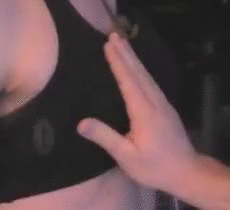Do 6TB drives wear out 6x faster than 1TB drives?
Go to solution
Solved by PokémonTrainerFour,
Not really an answer to the question, but 6x1TB isn't even close to sensible.
Get 3x2TB or 2x3TB, that's a nice blend in space and reliability.
-
Featured Topics
-
Topics
-
OnTheRoccs ·
Posted in Graphics Cards0 -
MiszS ·
Posted in Power Supplies0 -
0
-
0
-
BenD0T ·
Posted in New Builds and Planning1 -
5
-
1
-
3
-
GopherTv ·
Posted in New Builds and Planning7 -
Fat Cat11997 ·
Posted in Graphics Cards11
-
-
play_circle_filled

Latest From ShortCircuit:
Feels like I'm wearing nothing at all... - Shokz OpenFit Air



















Create an account or sign in to comment
You need to be a member in order to leave a comment
Create an account
Sign up for a new account in our community. It's easy!
Register a new accountSign in
Already have an account? Sign in here.
Sign In Now